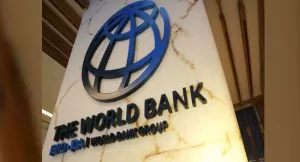Nigeria Faces Rising Poverty by 2027, Warns World Bank

The World Bank has issued a sobering forecast for Nigeria, projecting that more Nigerians will fall into poverty by 2027, exacerbating the country’s already dire economic challenges. According to the latest edition of the Africa’s Pulse report, released in April 2025, Nigeria’s poverty rate is expected to rise by 3.6 percentage points over the next two years, driven by structural economic weaknesses, dependence on oil, and persistent governance issues. This alarming trend underscores the urgent need for transformative reforms to reverse the trajectory and uplift millions of Nigerians trapped in hardship.
A Growing Crisis
Nigeria, Africa’s most populous nation and largest economy, has long grappled with widespread poverty. The World Bank estimates that in 2024, over 56% of Nigerians—approximately 129 million people—lived below the national poverty line. Even more concerning, 106 million Nigerians were classified as living in extreme poverty, defined as surviving on less than $1.90 per day (adjusted for purchasing power parity). These figures position Nigeria as a major contributor to global poverty, with Sub-Saharan Africa accounting for 80% of the world’s 695 million extremely poor people.
The projected increase in poverty by 2027 is a stark reminder of the fragility of Nigeria’s economic framework. Despite some positive developments, such as growth in the non-oil sector in the last quarter of 2024, the country’s overreliance on oil exports continues to expose it to global market volatility. Structural challenges, including inadequate infrastructure, weak governance, and limited job creation, further compound the problem, leaving millions vulnerable to economic shocks.
Why Poverty is Rising
The World Bank’s report highlights several factors driving Nigeria’s rising poverty. First, the country’s resource-rich but fragile economy struggles to translate wealth into broad-based prosperity. While nations with diversified economies or higher agricultural commodity prices—such as non-resource-rich countries in Sub-Saharan Africa—are expected to reduce poverty faster, Nigeria’s oil-dependent model limits its resilience. Global oil price fluctuations, coupled with domestic production challenges, have constrained government revenues and hampered investments in critical sectors like education, healthcare, and infrastructure.
Second, governance issues remain a significant barrier. Corruption, inefficient public spending, and weak institutional frameworks have undermined efforts to address inequality and create opportunities for the poor. The report notes that fragile and conflict-affected countries, including Nigeria, face unique challenges in implementing effective poverty reduction strategies. Insecurity in regions like the Northeast, coupled with climate-related shocks such as flooding, further exacerbates vulnerability among rural and marginalized communities.
Third, Nigeria’s population growth outpaces economic gains. With a population of over 230 million and a fertility rate among the highest globally, the country faces immense pressure to create jobs and provide services for its youth. However, unemployment and underemployment remain rampant, particularly among young people, pushing more households into poverty.
A Regional Perspective
Nigeria’s poverty crisis is part of a broader trend in Sub-Saharan Africa, where progress in poverty reduction has been uneven. The Africa’s Pulse report indicates that while some countries are benefiting from higher agricultural commodity prices and improved economic policies, resource-rich and fragile nations like Nigeria are lagging behind. Sub-Saharan Africa’s share of the global poor has grown significantly, with the region now home to eight out of every ten people living in extreme poverty worldwide.
The report contrasts Nigeria’s trajectory with that of non-resource-rich countries, which are projected to see faster poverty declines due to agricultural growth and export opportunities. For Nigeria, diversifying the economy away from oil and strengthening sectors like agriculture, manufacturing, and technology will be critical to reversing the poverty trend.
Glimmers of Hope
Despite the grim outlook, there are signs of potential. Nigeria’s non-oil sector, including services and agriculture, showed resilience in late 2024, contributing to modest economic growth. The World Bank notes that targeted reforms, such as improving access to credit for small businesses, investing in rural infrastructure, and enhancing social safety nets, could help mitigate poverty. Additionally, Nigeria’s vibrant tech ecosystem and youthful population present opportunities for innovation and job creation, provided the government can create an enabling environment.
Recent policy efforts, such as fuel subsidy reforms and attempts to unify exchange rates, signal a willingness to tackle longstanding economic distortions. However, these measures have also led to short-term hardships, including inflation and higher living costs, which disproportionately affect the poor. The World Bank emphasizes that complementary policies—such as cash transfers, skills training, and investments in education—must accompany structural reforms to cushion vulnerable populations.
The Path Forward
To avert the projected rise in poverty, Nigeria must act swiftly and decisively. The World Bank recommends a multi-pronged approach:
- Economic Diversification: Reducing dependence on oil by investing in agriculture, manufacturing, and renewable energy can create jobs and build resilience against global shocks.
- Governance Reforms: Strengthening institutions, improving transparency, and tackling corruption will ensure that public resources benefit the poor.
- Social Investments: Expanding access to education, healthcare, and social protection programs can empower marginalized communities and break the cycle of poverty.
- Climate Resilience: Addressing environmental challenges, such as flooding and desertification, is critical to protecting rural livelihoods.
- Youth Empowerment: Leveraging Nigeria’s young population through skills development and entrepreneurship programs can drive inclusive growth.
International support will also be crucial. The World Bank and other development partners have pledged to work with Nigeria to implement evidence-based policies and mobilize resources for poverty reduction. However, the primary responsibility lies with Nigeria’s leaders to prioritize the welfare of their citizens and translate commitments into tangible outcomes.
A Call to Action
The World Bank’s warning is a clarion call for Nigeria to confront its poverty crisis head-on. With millions of lives at stake, the next two years will be pivotal in determining whether the country can reverse the tide of hardship or sink deeper into economic distress. For ordinary Nigerians, the stakes could not be higher. As one Lagos resident remarked, “We need jobs, we need schools, we need hope. The government must act now, or more of us will suffer.”
As Nigeria navigates this critical juncture, the world is watching. The path to prosperity is fraught with challenges, but with bold leadership and collective action, the country can chart a brighter future for its people.






